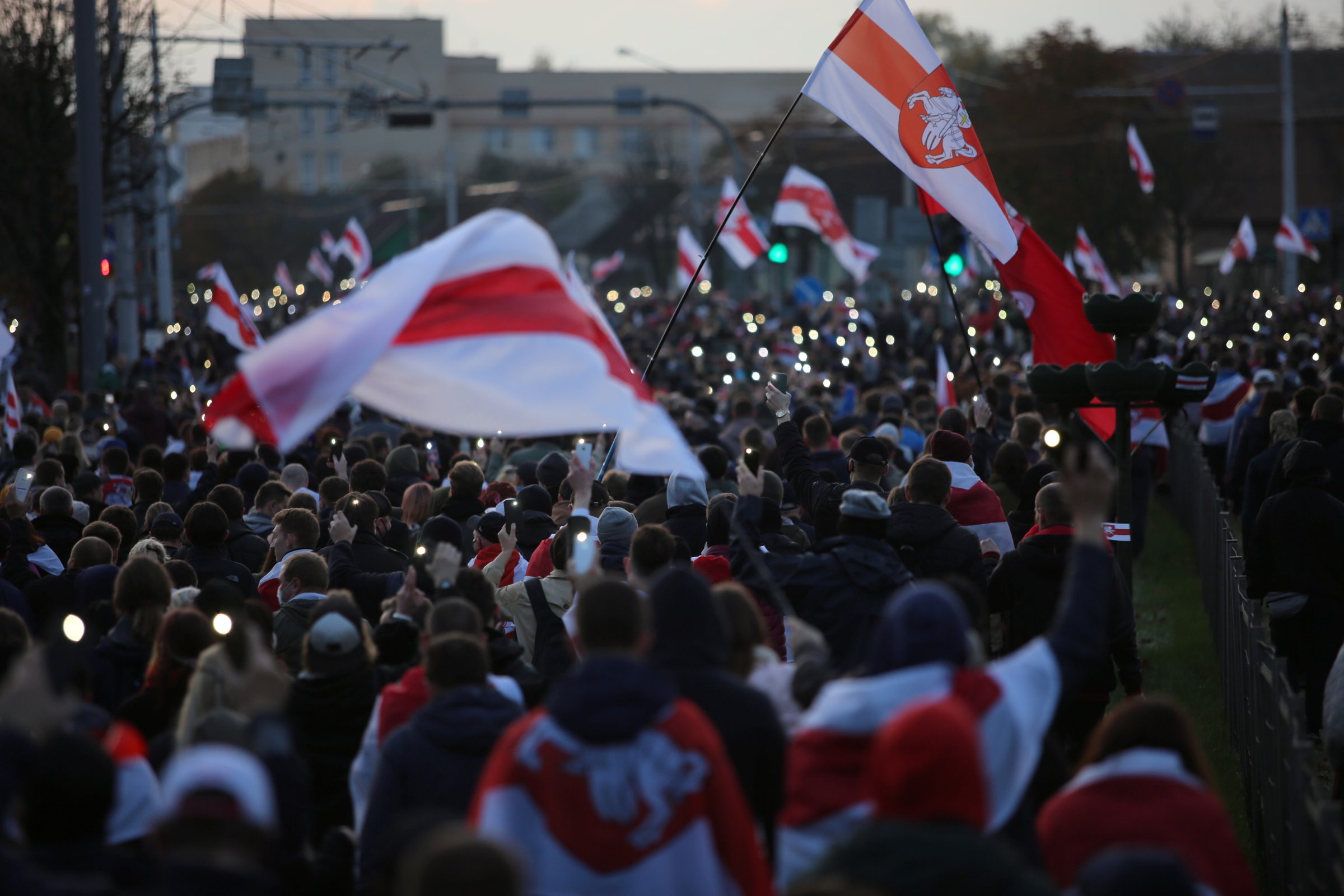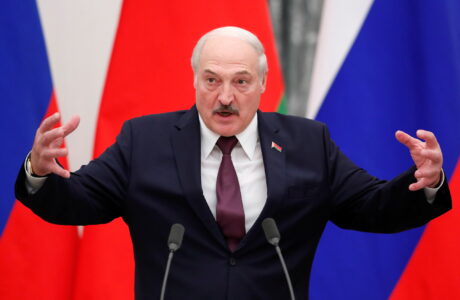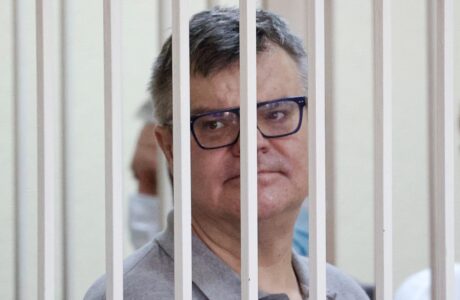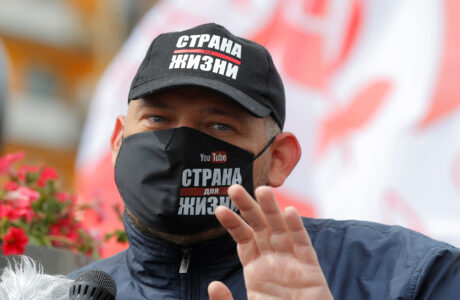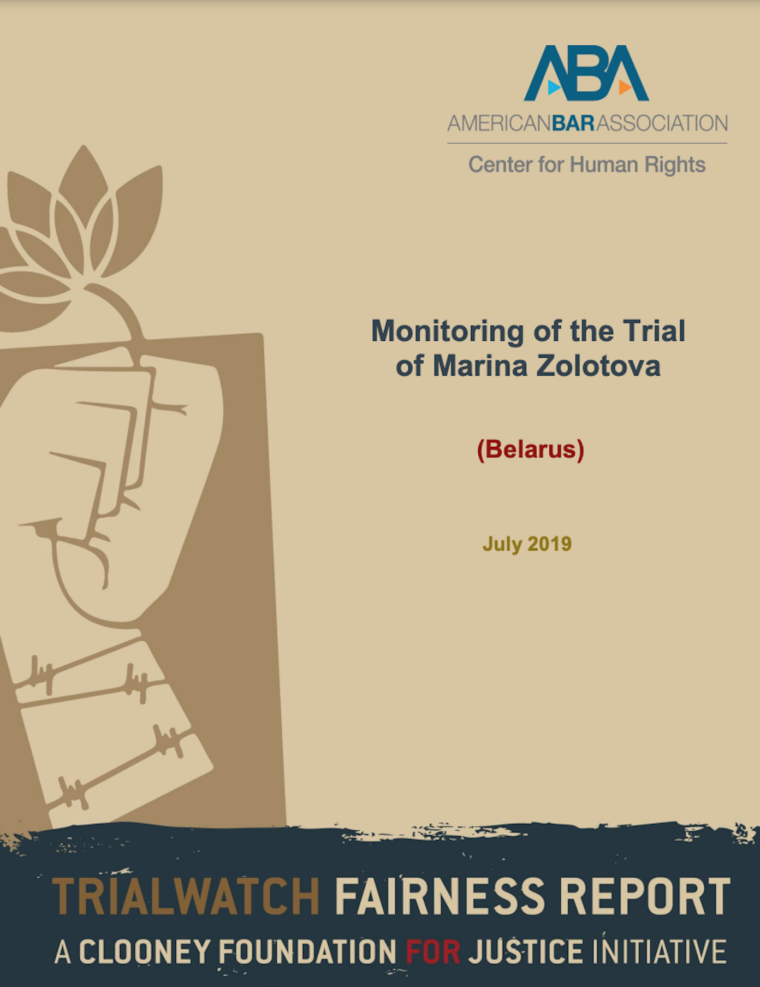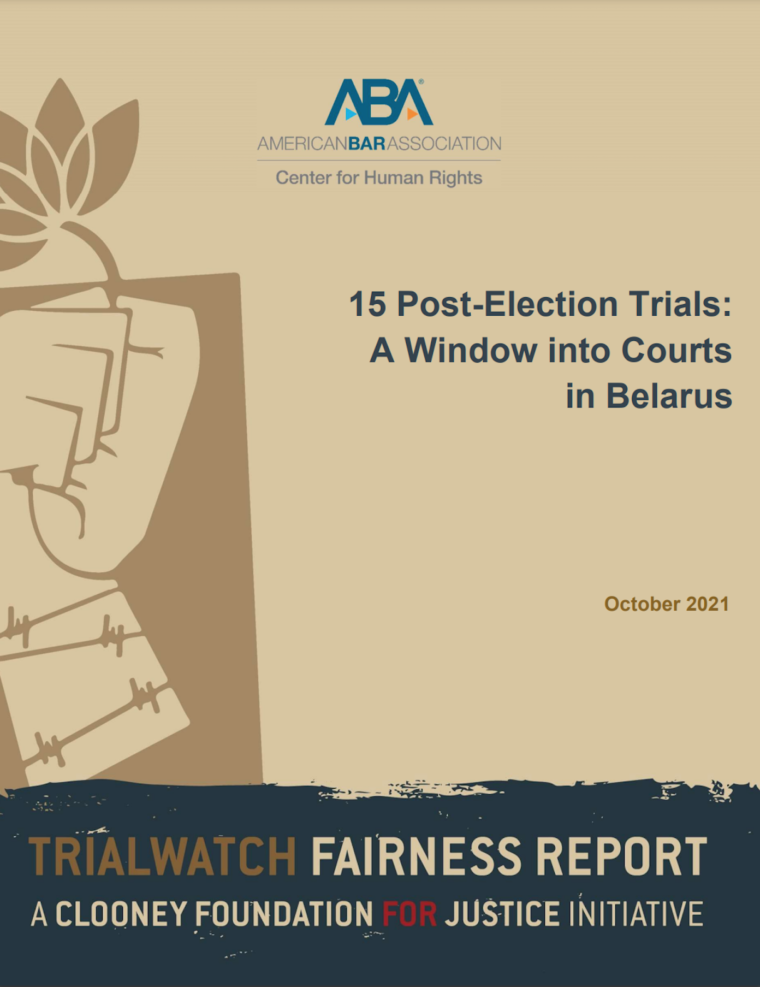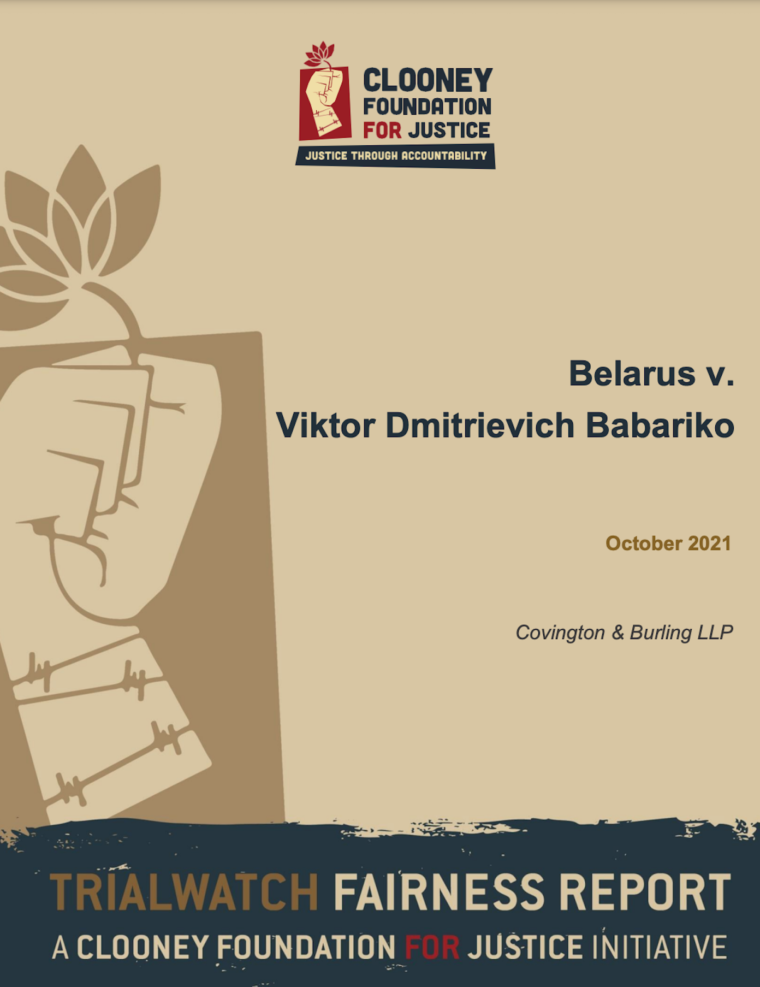In leadup to and following the 2020 presidential elections, Belarus has cracked down on political opposition, protesters, and journalists. With trials increasingly closed to the public and lawyers subject to confidentiality agreements or disbarred on spurious grounds, our TrialWatch reporting from when courts were more open is all the more valuable: across three reports, we covered how the crackdown on democracy has affected the opposition, protesters, lawyers and ordinary people, and journalists.
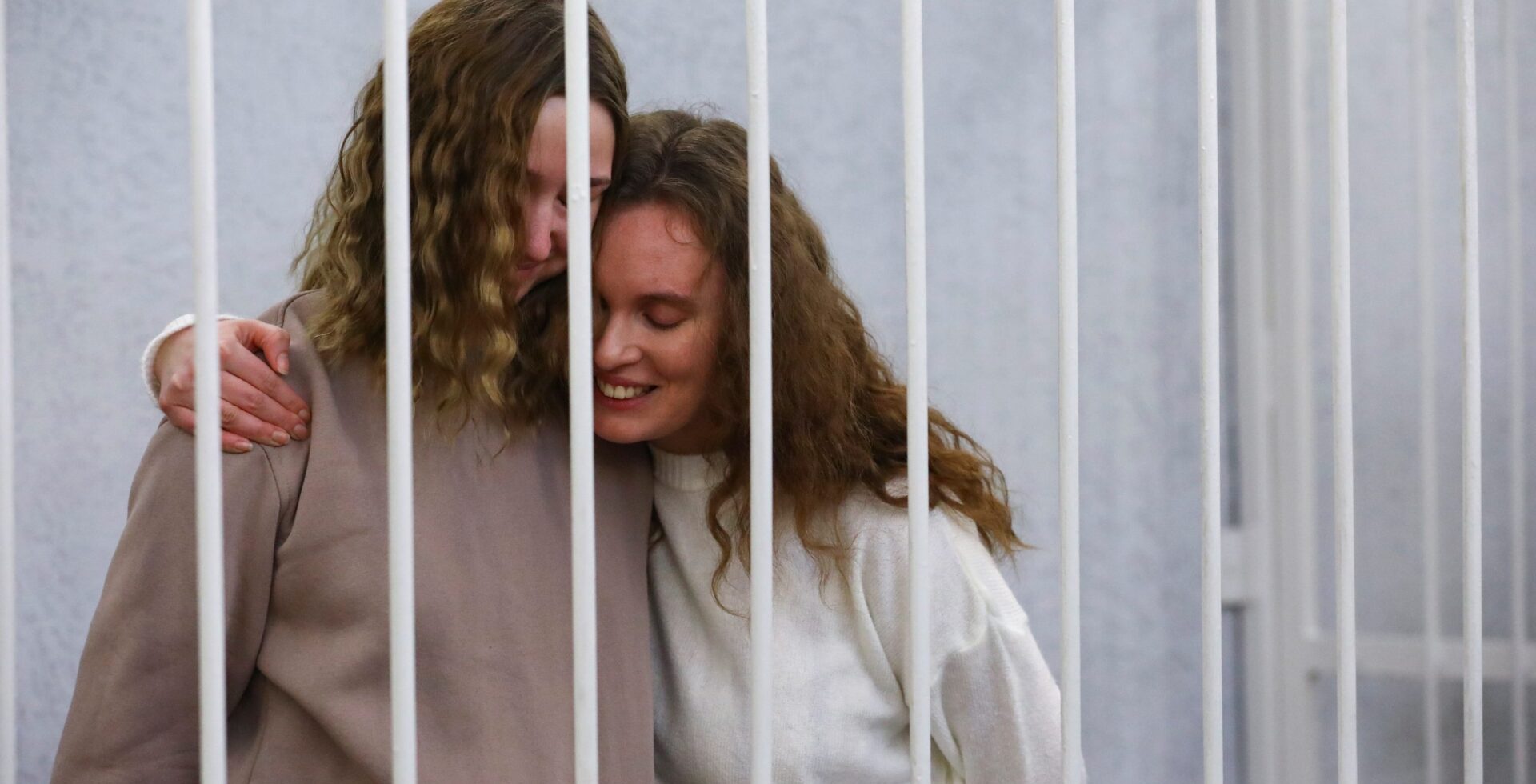
Katsiaryna Andreyeva and Daria Chultsova –
Katsiaryna Andreyeva and Daria Chultsova, two young journalists working for an independent media outlet, were convicted of ‘organizing group actions that grossly violated public order’ and given two-year prison sentences simply for live coverage of a protest. The TrialWatch report on their case, co-authored by Professor Van Schaack and staff at the ABA Center for Human Rights, finds that their conviction flouted the presumption of innocence.
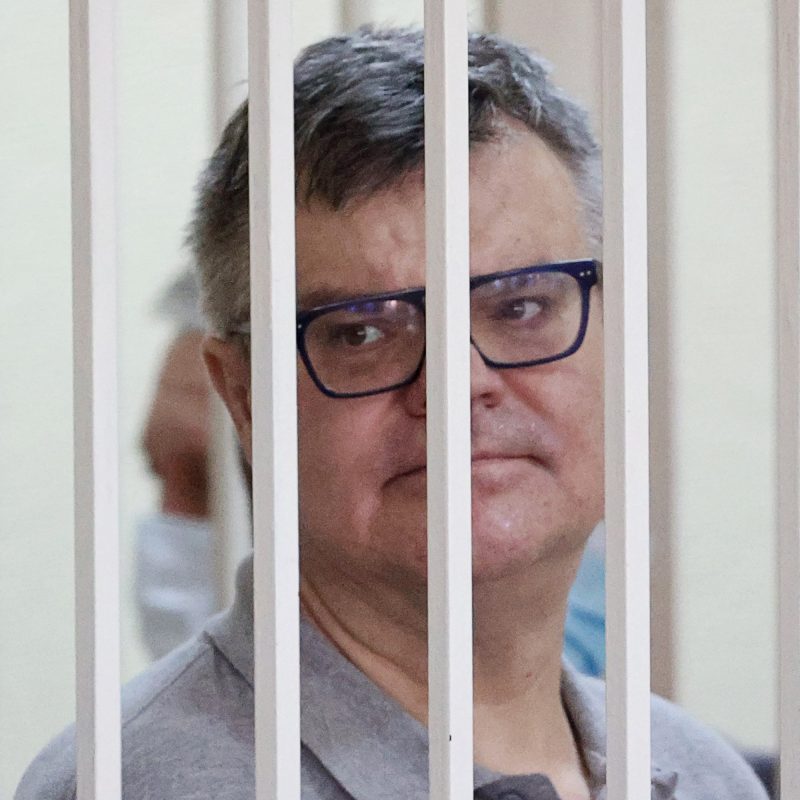
I consider all these criminal prosecutions and accusations to be totally unfounded, I vehemently oppose them and think they are politically motivated.
An opposition figure who was arrested while on his way to register his candidacy was convicted of financial crimes & given a 14-year prison sentence. The Fairness Report on the case gave the trial a grade of ‘D,’ & found that: “[T]he record of Mr. Babariko’s trial indicates that Belarusian authorities failed to afford him the benefit of the doubt, suggesting that his indictment, prosecution, & eventual verdict were all a foregone conclusion designed to punish him for his presidential campaign.”
The ABA Center for Human Rights and Human Rights Embassy monitored 15 protest-related cases as part of TrialWatch that show the full scope of the authorities’ post-election crackdown.
In one case, for instance, a man was arrested while praying for the victims of violence in the country. In another, an electrician who said he was walking home with his wife & child past the protests was part of a mass roundup of 150 people. Hearings were perfunctory at best, with two of them lasting 15 minutes.
In eight of the cases, lawyers had to ask for time to speak with their clients as they hadn’t been given an opportunity to consult before trial. In four cases, defendants were not represented by counsel at all and none of the defendants had access to counsel while being interrogated in detention.
The Fairness Report on these trials gave them a grade of ‘D,’ further finding that they “reflect persistent violations and reveal the systemic degradation of the Belarusian judicial system.”
